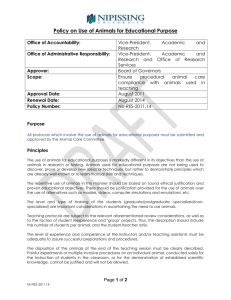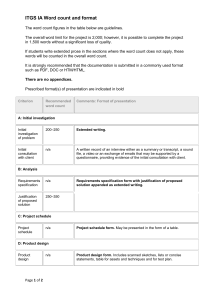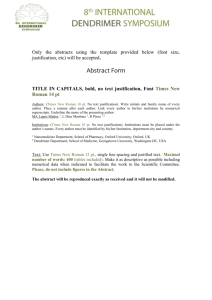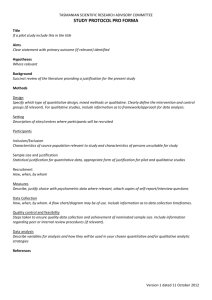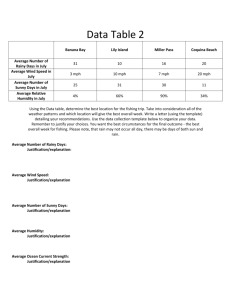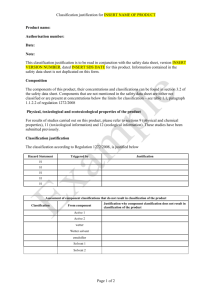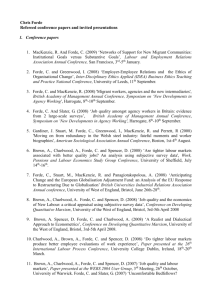By Faith Alone: Essays on Justification in Honor of Gerhard O. Forde
advertisement
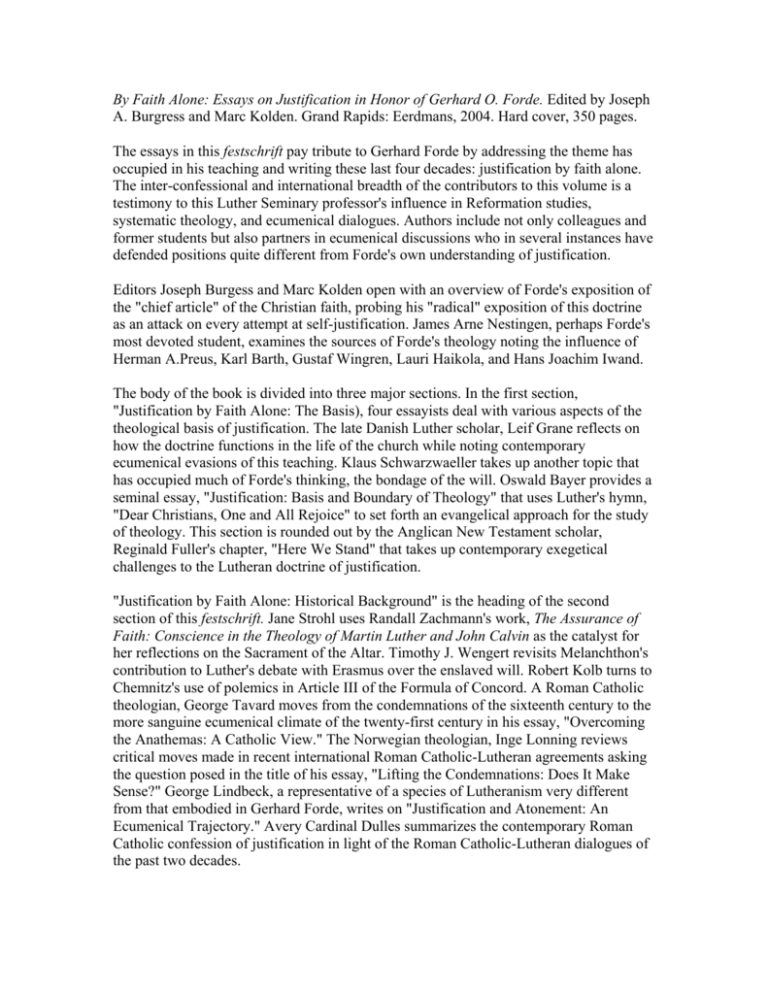
By Faith Alone: Essays on Justification in Honor of Gerhard O. Forde. Edited by Joseph A. Burgress and Marc Kolden. Grand Rapids: Eerdmans, 2004. Hard cover, 350 pages. The essays in this festschrift pay tribute to Gerhard Forde by addressing the theme has occupied in his teaching and writing these last four decades: justification by faith alone. The inter-confessional and international breadth of the contributors to this volume is a testimony to this Luther Seminary professor's influence in Reformation studies, systematic theology, and ecumenical dialogues. Authors include not only colleagues and former students but also partners in ecumenical discussions who in several instances have defended positions quite different from Forde's own understanding of justification. Editors Joseph Burgess and Marc Kolden open with an overview of Forde's exposition of the "chief article" of the Christian faith, probing his "radical" exposition of this doctrine as an attack on every attempt at self-justification. James Arne Nestingen, perhaps Forde's most devoted student, examines the sources of Forde's theology noting the influence of Herman A.Preus, Karl Barth, Gustaf Wingren, Lauri Haikola, and Hans Joachim Iwand. The body of the book is divided into three major sections. In the first section, "Justification by Faith Alone: The Basis), four essayists deal with various aspects of the theological basis of justification. The late Danish Luther scholar, Leif Grane reflects on how the doctrine functions in the life of the church while noting contemporary ecumenical evasions of this teaching. Klaus Schwarzwaeller takes up another topic that has occupied much of Forde's thinking, the bondage of the will. Oswald Bayer provides a seminal essay, "Justification: Basis and Boundary of Theology" that uses Luther's hymn, "Dear Christians, One and All Rejoice" to set forth an evangelical approach for the study of theology. This section is rounded out by the Anglican New Testament scholar, Reginald Fuller's chapter, "Here We Stand" that takes up contemporary exegetical challenges to the Lutheran doctrine of justification. "Justification by Faith Alone: Historical Background" is the heading of the second section of this festschrift. Jane Strohl uses Randall Zachmann's work, The Assurance of Faith: Conscience in the Theology of Martin Luther and John Calvin as the catalyst for her reflections on the Sacrament of the Altar. Timothy J. Wengert revisits Melanchthon's contribution to Luther's debate with Erasmus over the enslaved will. Robert Kolb turns to Chemnitz's use of polemics in Article III of the Formula of Concord. A Roman Catholic theologian, George Tavard moves from the condemnations of the sixteenth century to the more sanguine ecumenical climate of the twenty-first century in his essay, "Overcoming the Anathemas: A Catholic View." The Norwegian theologian, Inge Lonning reviews critical moves made in recent international Roman Catholic-Lutheran agreements asking the question posed in the title of his essay, "Lifting the Condemnations: Does It Make Sense?" George Lindbeck, a representative of a species of Lutheranism very different from that embodied in Gerhard Forde, writes on "Justification and Atonement: An Ecumenical Trajectory." Avery Cardinal Dulles summarizes the contemporary Roman Catholic confession of justification in light of the Roman Catholic-Lutheran dialogues of the past two decades. The third section of By Faith Alone, "Justification by Faith Alone: How It Applies," contains essays organized around practice. Scott Hendrix looks at the nature of the church in light of God's justification of the ungodly in "Open Community: The Ecclesial Reality of Justification." John H. Rodgers, Jr. makes the proposal that the historic episcopate might be embraced without limiting the freedom of the Gospel in his "Justification and the Historic Episcopate." Marc Kolden draws out the implications of justification by faith for the doctrine of vocation in "Earthly Vocation as a Corollary of Justification by Faith." Forde's longtime friend and colleague, Roy Harrisville, writes on "The Eschatological Significance of Justification for Preaching." C.FitzSimons Allison takes up Paul Tillich's challenge that the doctrine of justification "is so strange to modern man that there is scarcely any way of making it intelligible to him" (305). Allison demonstrates the vitality of the doctrine for the care of souls in "Pastoral Care in the Light of Justification by Faith Alone." Vitor Westhelle looks at ways that Luther's understanding of the "two kingdoms" has been used and misused in twentieth-century theology in "The Dark Room, the Labyrinth, and the Mirror: On Interpreting Luther's Thought on Justification and Justice." The volume concludes with a short, sermonic essay by the late Robert Bertram, "Faithful Teaching, But Religious?" By Faith Alone provides readers with a fine introduction to the work of Gerhard Forde and a testimony to his vigorous thinking. -John T.Pless Assistant Professor of Pastoral Ministry and Missions Concordia Theological Seminary Fort Wayne, Indiana
